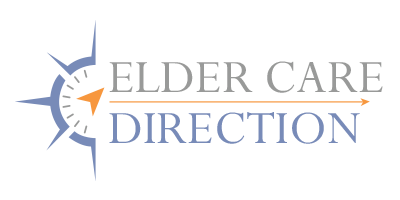Long-term care rules
Long-term care incorporates both assisted living and nursing home services. These services also include personal care in addition to medical services. Long-term care Medicaid rules have significant differences from the rules for other types of Medicaid services.
What Pennsylvania must pay for
Under federal law, Pennsylvania is required to pay for certain long-term care services for people who qualify, including home health care and nursing home care. Pennsylvania pays for home- and community-based services for people who meet the eligibility requirements.
Medicaid need not be accepted
Nursing homes and assisted living facilities are not required to accept Medicaid. You can ask the providers if they do. Facilities that do accept Medicaid are licensed by Pennsylvania and will be periodically inspected to make certain that they comply with federal rules.
Medical eligibility
People do not have to be elderly in order to qualify for Medicaid assistance for their long-term care costs. In Pennsylvania, the medical eligibility requirements include the following:
- Be a Pennsylvania resident
- Be a qualified non-citizen or U.S. citizen
- Have a social security number
- Have a medical need for long-term care as certified by a doctor
Financial eligibility
You will also need to meet Pennsylvania’s income and asset eligibility requirements for Medicaid. Pennsylvania looks at both your income and your resources in making this determination.
Income limits
In Pennsylvania, you can make up to 300 percent of the federal benefit rate, which was up to $2,205 each month in 2017. Most of your income is counted, including your Social Security, pension plan, IRA withdrawals, and others. We can help you to determine whether or not you qualify for Medicaid assistance.
Resource limits
Resources that are counted by Pennsylvania include the following:
- Cash value of your life insurance policies above $1,500
- Bank accounts
- Stocks, bonds, and mutual funds
- IRA accounts and KEOUGHs
- Property that you do not live in
Your primary residence is not counted if it is worth up to $525,000 and you plan to return home after your care. Your home also does not count if your spouse is living in it. Your car and a burial plot and marker are also not counted. The resource limit for people whose income is at or below 300 percent of the federal benefit rate is $2,000 as well as an additional $6,000 resource disregard amount.
Asset transfers
Many people are considered to be medically needy, which means that their costs of care would far outweigh their ability to pay. These people can qualify for Medicaid benefits by spending down their assets so that they qualify for assistance. You are allowed to spend your assets on anything that you wish, but you are not allowed to transfer assets for less than their fair market value. The state has a lookback period of five years to determine whether you have transferred assets for less than their fair market value in order to qualify for Medicaid. If you did, the state may impose a penalty through which you will be ineligible for benefits for an ineligibility period. This period is calculated by dividing the worth of the asset that you transferred by the median cost of nursing home care in Pennsylvania, which was $9,277 in 2017. This means that you might have to pay out-of-pocket for your services during the penalty period.
Contribution to cost of care
When you are living in a nursing home or are receiving services in your home, Medicaid requires that you contribute a majority of your income to your care. You are allowed to pay for your uncovered medical costs through a personal needs allowance. If you are receiving home health services in your home, you will also be allowed to keep the money to pay for your clothing, food, and housing. The remainder of your money will have to go towards the cost of your long-term care.
Spousal impoverishment protection
If you are married, and only one of you needs long-term care, the spouse who does not need care will not be required to give up all of the income and assets so that the other spouse can qualify for Medicaid. In Pennsylvania, the healthy spouse is allowed to keep up to one-half of the total amount of countable resources that are owned by the couple from no less than $24,720 and no more than $123,600 as of 2018. The amount of income that the healthy spouse can keep follows a more complicated formula. Elder Care Direction can assist you in determining your amount.
How Elder Care Direction can help
Long-term care services are very expensive and can deplete the values of estates. Medicaid planning can help you to qualify for benefits so that you can pay for your care needs while not being forced to pay out-of-pocket. Elder Care Direction can help you to plan for when you will need care in advance so that you do not have to go through a penalty period. Contact us today to schedule your consultation so that you can learn more about how we can help you.
Our sites and services may provide access to independent attorneys, self-help services, including general information related to the law, and lawyers designed to help users safely cope with their own legal needs. Our sites and services also provide services to lawyers and other legal professionals.
We are not lawyers or a law firm and we do not provide legal, business or tax advice. None of our representatives are lawyers and they also do not provide legal, business or tax advice. The accuracy, completeness, adequacy or currency of the content is not warranted or guaranteed. Our sites and services are not substitutes for the advices or services of an attorney. We recommend you consult a lawyer or other appropriate professional if you want legal, business or tax advice. See TERMS Of USE for more information.

